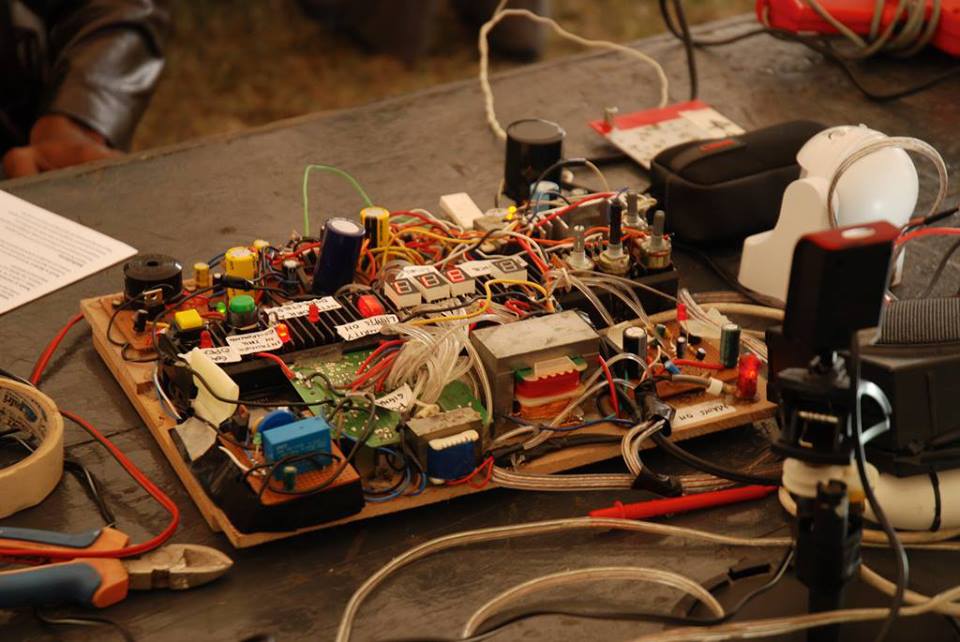Exploring Kenya's Thriving Hardware Innovation Scene: Insights and Comparison
A few months ago, I published an article on the state of hardware innovation in Nigeria. During my research, I frequently encountered a recurring suggestion from Nigerian hardware entrepreneurs: "Look at what the Kenyans are doing." Intrigued, I decided to delve into Kenya's hardware space. My exploration involved examining publicly available information and engaging with key stakeholders to gain a comprehensive understanding of the developments there. The journey revealed fascinating narratives, primarily centered around Kenya’s pioneering open maker space – Gearbox.
Before Gearbox: The Early Challenges
Before 2012/2013, accessing prototyping equipment in Kenya was a significant challenge. The closest resource was the FabLab at the University of Nairobi’s Science and Technology Park, led by Kamau Gachigi. Entrepreneurs had to resort to making their prototypes overseas, a costly and time-consuming process. As Erik Hersman, founder of iHub, recounted, “I remember trying to get some two 3D cases built in Europe and shipped to Kenya. In Europe, it would take $15 and 2 days. Getting it to Kenya cost $100 shipping, $115 duty, and 2 weeks to clear customs.”
Moreover, corruption, high crime rates, and underdeveloped infrastructure compounded the difficulties faced by hardware innovators. Daniel Hsu, Director of Partnerships at Village Capital, highlighted these obstacles, noting that the challenging environment made formal industry development seem unlikely.
The Emergence of Gearbox
The landscape began to change in 2014/2015 with the establishment of Gearbox, a rapid prototyping lab created to support hardware development in Kenya. Launched in 2013 through a partnership between Sanergy, Ushahidi, BRCK, Knowable, and Mobius Motors, with MIT as educational partners, Gearbox offered access to essential prototyping tools such as 3D printers, laser cutters, and CNC machines. It also provided training for individuals to build their own circuit boards.
Gearbox, now an independent entity, operates in a larger space and is home to some of Kenya’s most innovative hardware startups. Kamau Gachigi, the former head of the University of Nairobi’s Science and Technology Park, oversees the hub.
Nurturing Innovation: Key Initiatives
Funkidz Factory: In partnership with SOS and Safaricom, entrepreneur Ciiru Waweru runs a four-week creative thinking program for 30 kids at her FunKidz factory in Kikuyu, Kiambu county. Funkidz Factory is Kenya’s first maker space for children, fostering early interest in hardware innovation.
ChangeHub Innovation Center: This social enterprise, founded by Aggrey Mokaya, teaches design thinking, coding, and 3D printing to women in Lang’ata Prison, Kenya’s largest women’s prison. Since April 2016, ChangeHub has offered classes taught by local university graduates, empowering inmates with valuable skills.
Kenya’s Prominent Hardware Startups
The rise of Gearbox catalyzed a surge in hardware interest and entrepreneurship in Kenya. Erik Hersman, CEO of BRCK, observed a significant increase in hardware startups and investor interest post-Gearbox. Notable startups include:
- BRCK: This startup developed SupaBRCK, a waterproof, solar-powered Wi-Fi box functioning as a 3G hotspot and off-grid server. Their Moja service provides ad-supported free public internet access via SupaBRCK boxes.
- SasaLog: SasaLog offers a PoS system for prepaid mobile airtime refills using NFC or QR-Code and a B2B platform for supply chain connectivity.
- Micrive Infinite: Specializing in 3D printing for reconstructive surgery, Micrive Infinite collaborates with surgeons to create patient-specific, anatomically accurate models.
- Homgenius: This startup designed an automated brick-making machine for producing interlocking concrete block products.
- Koko Networks: Operating a dense network of cloud-connected “KOKOpoints,” this last-mile energy startup facilitates consumer access to goods and services.
Regulatory and Funding Landscape
The Kenyan government has supported the hardware sector through policies like the Special Economic Zone Act of 2015, creating favorable conditions for investment and innovation. Although direct government assistance remains limited, the overall policy environment indicates growing recognition of the sector’s importance.
Funding for hardware startups in Kenya has also improved significantly. While hardware startups still face a premium for investment compared to software, those integrating hardware with services have found increased interest from investors.
Conclusion: Leading the Way in East Africa
Kenya’s proactive approach to nurturing hardware innovation has positioned it as a leader in East Africa. The success of initiatives like Gearbox and the emergence of dynamic startups showcase the potential for a thriving hardware industry across Africa. With continued investment in equipment, supportive regulations, and talent development, African maker culture can achieve remarkable growth and impact.







Post a Comment